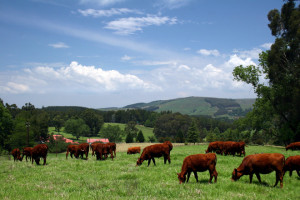Food poisoning is one of the worst experiences a person can go through. In even the most mild of cases, it often involves a lot of pain and discomfort and time missed from work. However, what many people do not realize is that is that, depending on the age of the victim and the strain of bacteria or virus involved, contaminated food can lead to serious injury or death.
 In cases of serious food poisoning, the plaintiff typically follows a negligence-based cause of action. In the Commonwealth of Massachusetts, the normal negligence standard is that defendant failed to act as a reasonable and prudent person to prevent foreseeable injuries to foreseeable plaintiffs. This can also be the basis for a food poisoning products liability case.
In cases of serious food poisoning, the plaintiff typically follows a negligence-based cause of action. In the Commonwealth of Massachusetts, the normal negligence standard is that defendant failed to act as a reasonable and prudent person to prevent foreseeable injuries to foreseeable plaintiffs. This can also be the basis for a food poisoning products liability case.
When applying the standard duty of care in a food poisoning case, we often look to how a reasonable company would act in the defendant’s position. It should be noted that in a food poisoning case, there are many defendant’s who may be responsible. In some case, the factory fails to perform safety inspections, and bacteria such as Listeria or E.coli finds it way into the production line. In other cases, the food is fine when it leaves the factory, but gets put on a refrigerated (reefer) truck that is either contaminated or has a faulty coolant system.
This can lead to the food becoming contaminated in transit. In some cases, the food is fine when it arrives at a store and then it turns out that store has a broken freezer or refrigerators. For example, those large open top freezers where chicken is often displayed at large retailers (know as coffin freezers in the industry) require a significant amount of monitoring since they are not sealed and will raise to room temperate very quickly. Additionally, when many commercial freezers fail, they actually start blowing hot air onto the food.
As a result of all of these possible defendants, your Boston products liability lawyer may find it necessary to name them all as defendants. However, in federal courts, your attorney may be able to list only one defendant, the one who actually sold the product to the plaintiff. If the defendant feels that a part in the distribution chain or the manufacturing chain is the real negligent party, then this defendant can implead (bring in) the other defendants. The point is that the corporate defendants can fight it out for themselves and seek indemnification, because they are in a better position to do so than the plaintiff.
One example of a potential food poisoning issues can be found in a recent article by the Carteret County News-Times. The United States Department of Agriculture (USDA) has just announced a recall of nearly 90,000 pounds of beef products that may be contaminated with wood products. While wood products being in beef may seem rather odd, these products were beef patties made with beef and around 20 percent Vidalia onions that are likely to have been transported in wood crates. While there is the risk of chemical contamination and bacteria growing on the wood, there is also a risk of finding splinters in the burgers.
Call the Boston Jeffrey Glassman Injury Lawyers for a free and confidential appointment — (617) 777-7777.
Additional Resources:
USDA announces beef product recall, January 5, 2016, Carteret County News-Times, by News Desk
More Blog Entries:
FDA Announces Testosterone Meds Must Carry Broader Warning, July 7, 2014, Boston Products Liability Lawyers Blog
 Product Liability Lawyer Blog
Product Liability Lawyer Blog

